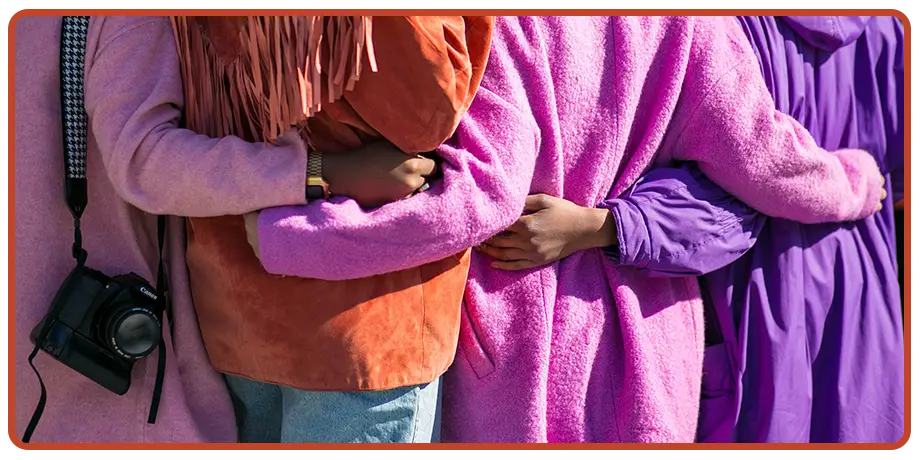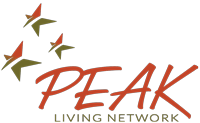Groups & Activities
The Peak Living Network involves many different kinds of supportive activities. You can choose to participate in any or all of them.
Our activities include:
* open PLN meetings
* online support and discussions, which takes place through our Slack space
* support groups, which anyone can start and lead
* book discussion groups for The Joyous Recovery
* exercise program groups to work through the healing exercises that accompany The Joyous Recovery
* co-counseling with other people in the network, also called “splitting time”
* co-counseling trainings
* orientation sessions
* reading the extensive PLN materials
* occasional PLN retreats
To receive a schedule of upcoming PLN events, released once or twice per month, sign up for the PLN Mailing List.
Open Meetings
Open PLN meetings currently take place online, and are held about once per month. Anyone is welcome to attend, so you are free to invite people you care about; open meetings are one way that new people can learn about PLN. An open meeting begins with a presentation on a topic related to emotional healing, of usually 20-25 minutes in length. Recent topics have included, for example, “Establishing and Maintaining Healthy Boundaries,” and “Using the Tapping Method to Manage Anxiety.”
After the presentation, there is open group discussion regarding the concepts in the presentation.
Finally, we reserve some time at the end for 1) other issues related to emotional healing that participants may want to raise, 2) discussions of PLN organizational issues, and 3) PLN announcements, such as upcoming gatherings.
Future PLN Open Meetings are listed on the calendar of events that comes in the PLN Newsletter which you can receive about twice per month by signing up for the PLN Mailing List.
Support Groups, Book Groups, and Exercise Groups
You can find a listing of PLN groups that are currently active, and which ones have openings, by joining the PLN Slack space and reading the channel called “support-groups.” Each listing tells who leads the group, so if no spots are available you can contact the group leader to ask to be put on the waiting list. And if you are starting or running your own group, you are free to put a listing for it there.
No one needs permission to start a PLN group. If you’re following the PLN Principles and Agreements, then you’re a PLN group. All PLN groups are free, though participants may be asked to pitch in toward the cost of renting meeting space for in-person groups.
Peak Living Network support groups can be general groups that are open to everyone, or can have a specific topic or constituency. The group leader decides what type of group it will be, so if you create your own group the constituency or topic is up to you.
Examples of Constituency Groups: women, lesbians and gay men, Jews, people of color, working class people, school teachers, scholars, activists, elderly people, parents – and an endless number of other possibilities.
Examples of Topic Groups: setting and meeting goals, dealing with the mental health system and medication decisions, improving physical health, social justice, spirituality, and religion, overcoming abuse — and an equally endless number of other possibilities.
PLN support groups are devoted largely to splitting time, where each person gets the same length of time to be the focus of the group’s attention and to talk about whatever is on their mind. Turns are timed; the person who is speaking gets a heads-up when there are two or three minutes left in their turn, and they need to stop talking when their full time is up, even if they aren’t at a good stopping point.
Men are encouraged to join PLN groups (except for women’s groups), but we do not accept men who have histories of abusing women even if they consider themselves to be in a process of change.
Book discussion groups for The Joyous Recovery are offered about three times per year and run for about ten weeks, one hour per week. Each week the group discusses roughly two chapters from the book. The structure of these groups is more informal than in a support group, and the focus is on discussing ideas rather than on sharing personally (though a fair amount of personal sharing often ends up happening voluntarily). Listings for upcoming groups are found in the PLN Newsletter which you can receive about twice per month by signing up for the PLN Mailing List.
You can also organize and facilitate your own book group, using the Discussion Guide for Book Groups on The Joyous Recovery.
Exercise Groups gather to support each other on working through the Exercise Program for The Joyous Recovery, the set of healing activities that accompany that book. Exercise groups that are forming are announced in the PLN Newsletter. You can also organize and facilitate your own Exercise Group, using the Guide for Exercise Groups for The Joyous Recovery.

Orientation Sessions
Orientation sessions are online gatherings where new people can hear descriptions of what the Peak Living Network principles are and how the different PLN activities work. These meetings are also an opportunity to meet other people who are new to the network, and to ask questions of people who already have some history with the network.
You can watch a video presentation of the orientation information, Peak Living Network Orientation. However, this is not the same as attending a live orientation, as you won’t have the opportunity to ask questions or to connect with other new people.
Upcoming orientations are listed in the PLN Newsletter.
Written Materials & Videos
Part of what helps to bond members of the Peak Living Network is the PLN readings we read, absorb, and discuss with each other. We offer a large collection of written materials that are free to download, including The Healing Partnership, a complete manual for co-counseling. We also offer a large collection of videos which are free to watch.
In addition to the co-counseling manual, our written materials include a large number of articles and handouts related to emotional healing and social justice.
Retreats
The Peak Living Network offers occasional weekend healing retreats at retreat centers. There is a charge for these retreats to cover the food and lodging expense at the center, plus a small additional amount to cover our expenses in putting the retreat on. Some PLN retreats are specifically related to co-counseling; these may be for beginners in co-counseling or may require participants to have already completed a Level 1 Co-Counseling course. Other PLN retreats are not focused on co-counseling, and those address a variety of topics related to emotional healing and social justice.
Upcoming retreats are listed in the PLN Newsletter.
If you would like to organize a PLN retreat near you, we are happy to work with you on planning the retreat and Lundy is available to lead it for you if you would like him to play that role. Below are the characteristics we’re looking for in a retreat center; we’re aware that we may not always be able to get 100% of these elements that we’re hoping for, but we need to come close:
* A place that feels like a healing environment, not a corporate retreat center. Places that specialize in yoga, dance, spirituality, or personal growth retreats tend to be a good fit for us. Places will usually need to be a bit on the rustic side in order for us to be able to afford them.
* A place where we’ll be the only group using it – in other words, they just rent to one group at a time — or where we can feel completely separate from any other group that’s there.
* A place that provides meals, or that has a relationship with a local caterer that we could contract with.
* A place that can hold at least 20 people and ideally 30 or even 35.
* We’re hoping for a place that wouldn’t cost more than $150 per day U.S. per person, including meals, in shared rooms. So something like $300 per person for a weekend and $420 per person for a three-day workshop. (Less would be better, but it seems like prices for everything have gone up since the epidemic, so we’re not likely to do a lot better.)
* A location within two hours of an airport.
* Although the place does not need to offer private rooms, it certainly helps they have a couple of them available for people who need one and are willing to pay extra to have one. It helps a great deal if at least one private room can be available so that the group leader can have one, because it can be tough to share a room while running the weekend.
* We have no need for hotel-style amenities such as refrigerators or Wifi in the rooms. (And most retreat centers that are personal or spiritual growth oriented don’t offer these things.)
If you would like to organize a retreat, we recommend that you begin by identifying one or more possible locations. Then send an email to [email protected] to get the process rolling.
INTERESTED IN RECEIVING COMMUNICATION FROM US?
